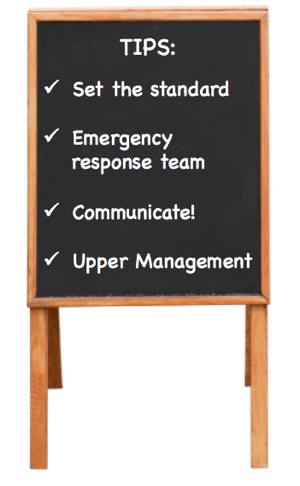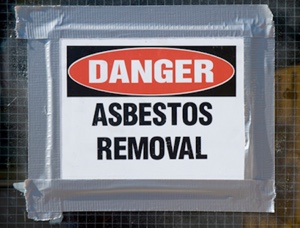 Workers' compensation insurance allows employees who are injured on the job to receive payments for medical expenses, lost wages, and other expenses as they heal. It is usually paid by an insurance policy that has been taken out by the employer. Workers' compensation is required by law in most states, and receiving payment for workplace injuries may be an employee’s legal right.
Workers' compensation insurance allows employees who are injured on the job to receive payments for medical expenses, lost wages, and other expenses as they heal. It is usually paid by an insurance policy that has been taken out by the employer. Workers' compensation is required by law in most states, and receiving payment for workplace injuries may be an employee’s legal right.
But not everyone plays fair. Dishonest employees, employers, and health care providers are using fraudulent tactics to take money they do not deserve.
Fake Workers Comp Injury Claims by Employees
Most employees are honest, but the lure of free money, combined with the opportunity to bring in even more money at a second job, can be tempting. While only a small number of employees scam this coverage for personal profit, the damage can be substantial. Here are some of the ways dishonest employees can cheat the system:
- Embellished injuries: A worker insists that a minor injury received on the job is much more serious and requires a longer time away from work.
- Hurt off the job: Workers get injured elsewhere, but claim that they were hurt at work.
- Faking an injury: Some workers simply invent injuries. Injuries such as muscle problems with the back and neck are hard to disprove and easier to get away with.
- Previous injury: A worker with an old injury that never quite healed will claim he just got hurt on the job.
- Malingering: Workers pretend they're still disabled, even though they've healed enough to return to work.
Workers Comp Premium Scams by Employers
Fake injury claims far outnumber premium scams, but most workers comp insurance premium scams are much larger. A worker's bogus injury claim normally costs $2,000-$50,000 total. Employers can illegally reduce the workers comp insurance premiums they owe, costing hundreds of thousands of dollars in unpaid premiums in one year. Some scams can last for several years, resulting in millions lost. These cons can be complex and are hard to discover. Here’s how they work:
- Hiding employees: The company reports fewer employees or a lower payroll than it actually has. The owner might also falsely claim that some of the workers are independent contractors and don't count toward workers’ comp premiums.
- Misclassifying employees: The dishonest employer tells the workers’ comp insurer that many employees work at safer jobs than they really do.
- Avoiding coverage: The business doesn't buy state-required workers’ comp insurance, leaving workers dangerously exposed if they're injured.
Health Care and Lawyer Scams
Sometimes medical clinics and lawyers will team up to cheat workers’ compensation insurance. These are often well-organized and can steal millions of dollars a year. Here are some of the most common scams:
- Inflated injuries: Clinics may overstate the seriousness of injuries to workers, and bill insurers for costly and worthless treatments or tests.
- Phantom injuries: Clinics may bill insurance for treatment of injuries that never happened.
- Bogus lawsuits: Disreputable lawyers working with crooked clinics encourage uninjured workers to seek useless treatment. The lawyers then may threaten to sue unless the insurance company settles the phony claim quickly.
- Kickbacks: Dishonest clinics and lawyers hire recruiters to bring workers into the scams. The recruiters receive illegal kickbacks for referring patients to the lawyers or clinics.
- Bogus clinics: Some clinics are fakes. There are no licensed doctors or useful medical equipment. The clinic is merely a staging ground for bogus workers’ comp claims.
Workers’ Comp Insurance Fraud IS a Big Deal!
Workers’ comp fraud is a large crime in America. Tens of billions of dollars in false claims and unpaid premiums are stolen every year. That makes it a very big deal! Insurers pass on higher premiums to businesses, while consumers pay higher prices for goods and services from businesses. Workers may have their pay reduced or their jobs eliminated, while those who remain employed may be at risk in businesses that illegally avoid buying insurance.
Call Us to Get the Right Workers Comp Insurance Policy for Your Business
 No businee is exempt from this problem.
No businee is exempt from this problem.
Click here to contact us or give us a call at (800) 947-1270 or (610)775-3848 to get the right workers’ compensation insurance for your business.



 Businesses today face challenges in managing a
Businesses today face challenges in managing a 
 In the early 1990’s when many states began passing workers compensation insurance acts, there was a prerequisite that any compensable injury had to have a physical impact. That has changed over the years.
In the early 1990’s when many states began passing workers compensation insurance acts, there was a prerequisite that any compensable injury had to have a physical impact. That has changed over the years. To learn more about saving on
To learn more about saving on  Changing your
Changing your  Need help finding a good TPA?
Need help finding a good TPA? Workers Compensation Premium Audits - a necessary evil (some would say) for any employer - determines the final cost of your
Workers Compensation Premium Audits - a necessary evil (some would say) for any employer - determines the final cost of your  For more information about premium audits or how to get the best deal on
For more information about premium audits or how to get the best deal on  Set the Standard
Set the Standard You say you have good
You say you have good  The inability to get the right care, from the right provider, at the right time is one of the leading causes of increasing medical costs.
The inability to get the right care, from the right provider, at the right time is one of the leading causes of increasing medical costs.  Contact Us for Workers Compensation Insurance Assistance
Contact Us for Workers Compensation Insurance Assistance



